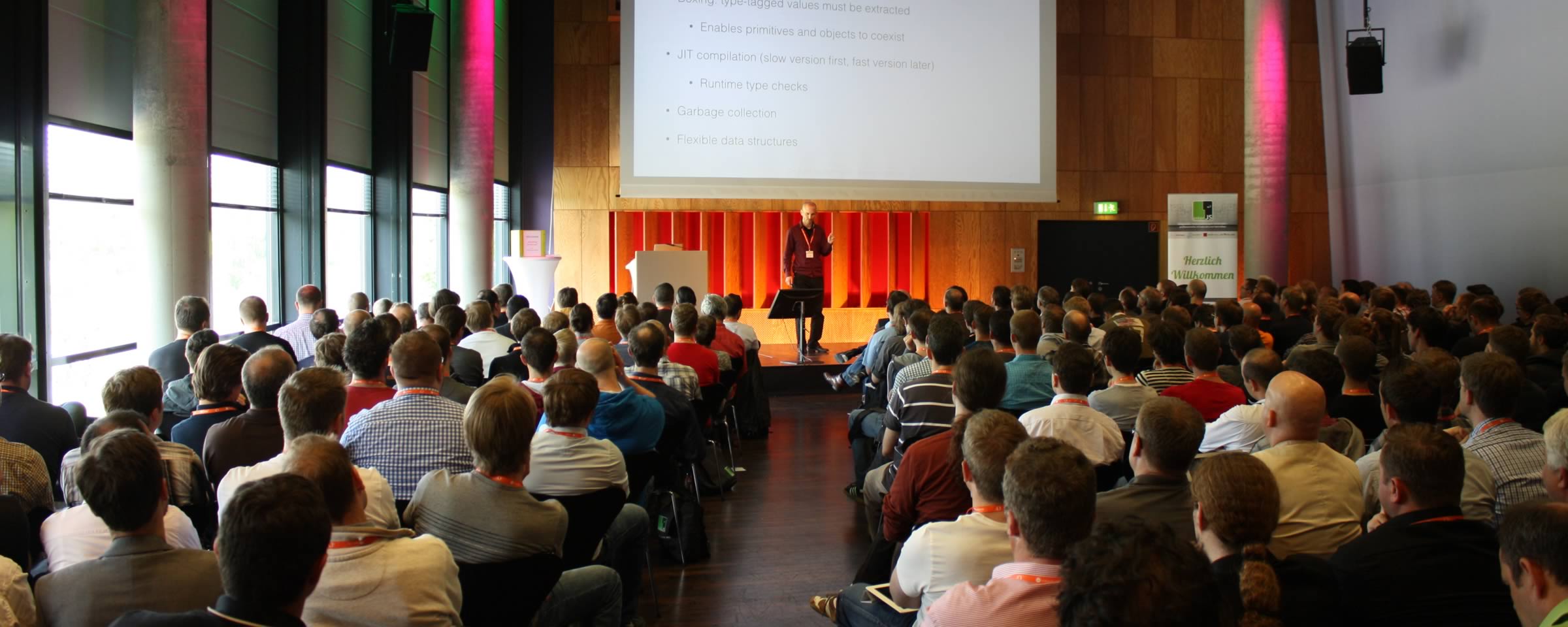
 Matthias Wagler
Matthias Wagler

22.07.2014
enterJS 2014 – JavaScript meets enterprise
Amongst designers and frontend engineers JavaScript is a well known and valued weapon of choice. In the enterprise world however, especially here in Germany, things behave a little differently. People are often having trouble finding their way through the open web ecosystem and in some contexts JavaScript is still wrongly underestimated as a toy language.
So lots of good reasons for dpunkt.verlag, iX, heise online and the native web to join forces and organize enterJS 2014 – the first German enterprise JavaScript conference that took place in Cologne. By the way: Intuity is partner at the native web, a start-up we are very proud to be part of.
I had the great opportunity to join the advisory board which meant digging through a huge bunch of proposals and spotting interesting topics, talks and people. When finally 50 talks had been chosen as the official agenda about 280 JavaScript enthusiasts followed the call to Cologne.
The conference was a great chance to meet inspiring people from the community but also to get a sense on how JavaScript is currently perceived in the enterprise world. So I wanted to share some of the thoughts that popped up in my head while talking to developers and listening to talks by Golo, Bert Belder (Node.js core contributor), Axel Rauschmayer (author of Speaking JavaScript), Pascal Precht (author of angular-translate) to name only a few.
UI is the reason for enterprises to go JavaScript
The main reason for so many companies to focus on JavaScript right now is the fact it is the only language that can be used to create UIs across so many devices and platforms. On the server-side companies in Germany seem to be a bit more conservative. A good opportunity for speakers like Mark Stuart from Paypal to focus on securing Node.js web applications and to showcase how JavaScript can run securely on the server side.
angular, angular, angular
AngularJS appears to be the most valued framework when it comes to building modular and enterprisy web applications. Probably because of a lot of the concepts inside AngularJS e.g. MVVM and data-binding seem very familiar to people coming from a .NET background (where a lot of these concepts have originally been introduced). That’s great news for designers and frontend engineers because the declarative style of AngularJS is quite a good fit for people that are working on the UI-side of things.
The web ecosystem is different
One of the main challenges when moving from a closed ecosystem (e.g. .NET, Silverlight, etc.) to JavaScript is the need for a cultural change. Enterprises need to provide stability and backwards compatibility to their customers which is often in contrast to the open, ever bubbling and ever evolving ecosystem of web technologies. Being a good JavaScript citizen is often about orchestrating the right frameworks, following interesting people, staying in touch with communities and also giving back to them. Things that long-established companies need to learn.
Ensuring quality makes developers happy
A lot of the talks focused on tools and techniques that make developers happy by speeding up development and ensuring code quality which were well received by the audience and could combat many of the long-standing prejudices that JavaScript has been surrounded by.
It’s been two inspiring days filled with lots of semicolons, curly brackets and laid back people. So we’re really looking forward to next year…